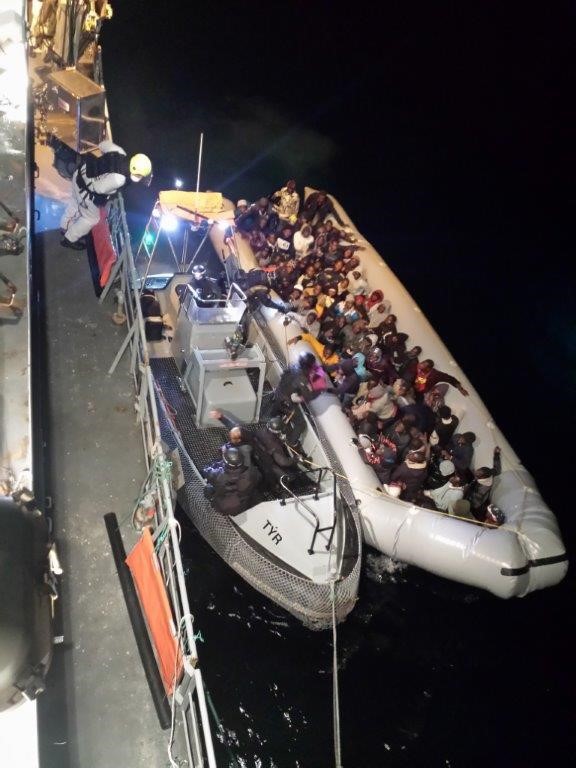Since Friday, February 13, most of the vessels and planes deployed in joint operation Triton have been taking part in the rescue efforts that so far have helped save more than 3,000 migrants who departed from Libya.
The Italian Maritime Rescue Coordination Center, responsible for coordination of search and rescue (SAR), directed Frontex-coordinated boats and aircraft to assist in more than 20 separate incidents this weekend. While more than 2000 rescued migrants have already been disembarked in Italy, 14 SAR operations that involve some 1,000 migrants are still on-going.
In one of the incidents that took place on Sunday, Italian Coast Guard vessel carrying 247 rescued migrants was attacked by four men armed with Kalashnikovs when it tried to tow the empty migrant boat. The attackers, who arrived on a speed boat, have taken it back to Libya to possibly reuse it for future smuggling operations. Nobody was injured in the incident.
“This violent act requires a reflection and consultation with Member States on the risks faced by Triton participants,” said Frontex Executive Director Fabrice Leggeri.
“We are dealing with a new and dangerous phenomenon that shows that people smugglers are getting more bold and ruthless,” he added.
Frontex-deployed Icelandic Coast Guard vessel Týr participated in three separated SAR operations this weekend and helped rescue 285 migrants who were disembarked in Augusta, Sicily on Sunday evening. An Italian Coast Guard vessel, and Italian Navy vessel Spica, both part of the Frontex operation, brought more than 500 migrants to Sicilian ports of Porto Empedocle and Pozzallo also on Sunday.
All of the rescued migrants, who are mainly from Sub Saharan Africa, travelled to Italy on rubber inflatable boats, each carrying more than 100 people and on wooden fishing vessels that had up to 400 people on board. Migrants, who set off from Libya contact the Italian authorities via satellite telephone as soon as they are outside of Libyan territorial waters. Most of the rescue operations take place in the international waters, some 100-120 NM south of the Italian island of Lampedusa.
